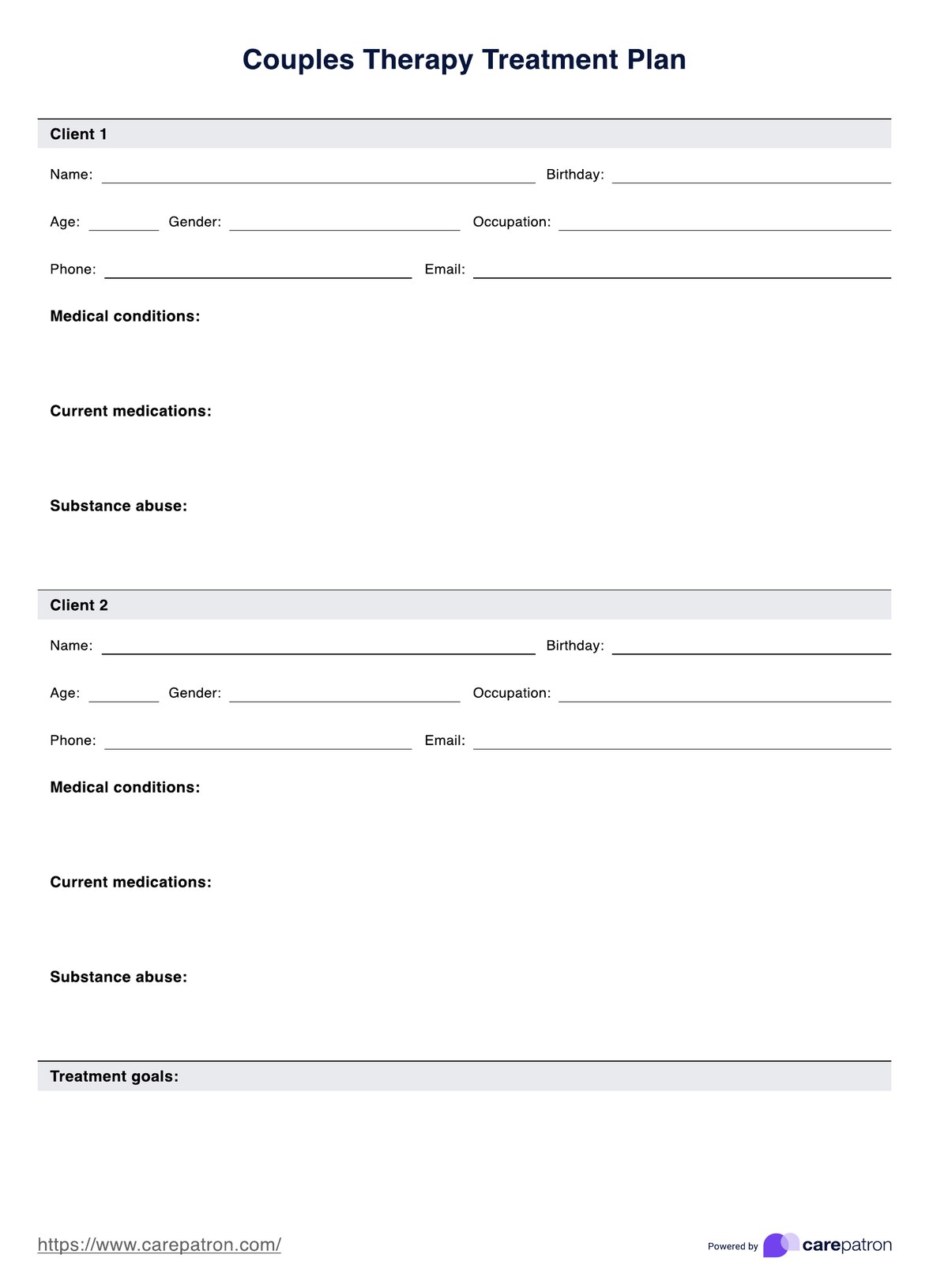Couples therapy typically involves a therapist who helps the couple identify and work through challenges in their relationship. The therapist may use various techniques, including communication skills training, problem-solving strategies, and behavioral interventions.

Couples Therapy Treatment Plans
Couples Therapy Treatment Plan is a therapy that focuses on improving partner relationships by identifying and addressing challenges.
Use Template
Couples Therapy Treatment Plans Template
Commonly asked questions
During a couples therapy session, the therapist will typically meet with both partners to discuss their concerns and challenges. The therapist may ask questions, offer feedback, and provide guidance on how to improve the relationship.
Yes, couples therapy is confidential, just like any other form of therapy. Ethical and legal standards bind the therapist to protect the privacy and confidentiality of their clients.
EHR and practice management software
Get started for free
*No credit card required
Free
$0/usd
Unlimited clients
Telehealth
1GB of storage
Client portal text
Automated billing and online payments











